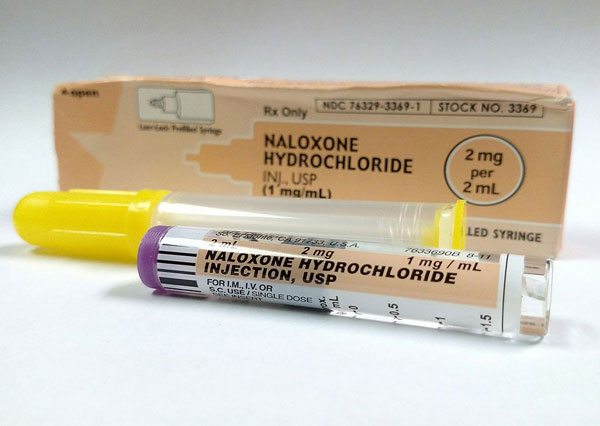
May 16, 2018; Kaiser Health News
One of just two calls to action this year by the US Surgeon General is related to naloxone and efforts to fight epidemic opioid overdoses in this country. The advisory statement encourages community members at large to learn about and even carry the antidote: “Naloxone is increasingly being used by police officers, emergency medical technicians, and non-emergency first responders to reverse opioid overdoses. There are two FDA-approved naloxone products for community use that are available by prescription, but too few community members are aware of the important role they can play to save lives.”
Nonprofit hospitals, advocacy groups, and community coalitions have been fighting to educate individuals, families and community members on life-saving strategies, including the use of overdose-reversing pharmaceuticals.
But while the awareness of the efficacy of quick-acting Narcan, or naloxone, has grown, so has the price. NPQ has been raising the alarm on this issue for years. Sadly, the heroic efforts of state legislatures across the country to ensure the legal use of naloxone, not just by first responders, but ordinary citizens as well, has also ensured a thriving market for the makers of such pharmaceutical antidotes.
To broaden access, every state and Washington, DC, have passed laws making it easier for friends, family members or bystanders to get and use naloxone. Just how easy it is depends on your state, or even the pharmacy you use.
Sign up for our free newsletters
Subscribe to NPQ's newsletters to have our top stories delivered directly to your inbox.
By signing up, you agree to our privacy policy and terms of use, and to receive messages from NPQ and our partners.
Congress has even called for accountability from drug manufacturers and is seeking pressure from federal agencies to call for fair pricing.
More than a dozen US senators have signed a letter urging Health and Human Services Secretary Alex Azar to negotiate with drug companies to lower the price of naloxone.
For people who can’t afford the drug, Ray said, health departments and nonprofits can help. Laws in many states allow these organizations to dispense naloxone to lay responders.
Meanwhile, nonprofits will do their best to get this life-saving mechanism in the hands of everyday people, ready to respond in a moment of need, while continuing to call for price reforms in order to increase access and reduce profiteering on a nation’s sad epidemic.— Jeannie Fox












